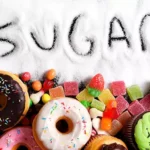
Table of Contents
Bloating is a feeling that can be annoying and unfortunate, most times because of the food we eat. Although temporary bloating is normal, you may have a more long-lasting problem if you consume too much of some particular foods. Let’s Check the Top 10 Reasons Why Bloating Occurs in Plain Language.
Beans and Legumes:
Legumes and beans, such as lentils and chickpeas, are good sources of dietary fibre and some vitamins. Consequently, they also contain complex carbohydrates which may be difficult to digest causing flatulence and bloating.
Cruciferous Vegetables:
Unlike nutrient-packed vegetables such as broccoli, cauliflower, and cabbage, these veggies contain compounds that can cause gas. This way of cooking vegetables facilitates their digestion.
Carbonated Drinks:
Fermentation or imposed pressurized state in carbonated drinks introduces air into your digestive system that causes bloating. Pick up some still water or herbal teas for hydration without the bubbly effects.
Dairy Products:
Most people are unable to process lactose, a type of sugar present in milk and dairy products. It can cause us to feel bloated and gassy. For lactose-intolerant persons, lactose-free alternatives or taking lactase supplements could be options.
Artificial Sweeteners:
Digestion of these sugar alternatives like sorbitol and mannitol found in sugar-free gum and some diet products can cause gas and bloating. Be careful when reading labels and be modest while consuming artificial sweeteners.
Processed Foods:
Often, in processed foods, there is a high level of sodium and which causes water retention and bloating. Go for whole, unprocessed foods and cook your meals at home where possible in order to decrease your consumption of processed products.
Fried and Fatty Foods:
The digestion process of fried and fatty foods is slower which makes the digestive system go slower and gives you stomach bloating. Prefer healthier cooking methods such as grilling, baking, or steaming.
Chewing Gum:
Chewing gum outputs the air that you swallow which can give you too much gas. Also, some gums have artificial sweeteners that can be added to digestion problems.
High-Sodium Foods:
Excess salt intake leads to the storage of fluids, resulting in swelling. Select low-sodium options whenever possible and keep an eye on your salt consumption.
Conclusion
In summary, identifying the food groups that play a role in bloating is the initial step of the process to deal with digestive disturbances. Although you should get and enjoy a variety of nutritious foods, listening to how your body reacts to particular substances enables you to make the right dietary choices, leading to better digestive health. If bloating gets along with something else or persists, be sure to see a healthcare provider to find the right plan for your health conditions.
Ashwagandha: The Herbal Hero for Health and Wellness
Ashwagandha, popularly known as “Indian Ginseng,” is an evergreen shrub which has been acclaimed by many for its extraordinary health advantages. Impact the health positively, let us take a tour of this evergreen thing in plain and simple words.
HEALWELLHUB
"Heal. Thrive. Unit





Leave a Reply